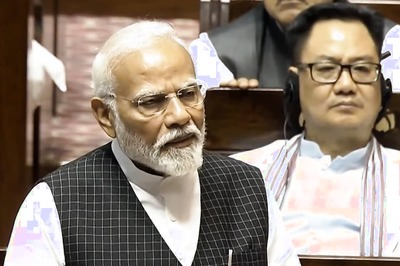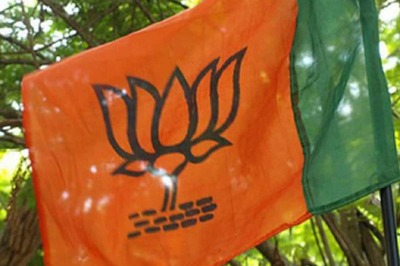India’s Aadhaar, UPI, CoWin Journey Inspiring; Others Can Follow for Digital Evolution: UNDP Officer

views
The pace at which India has rolled out technology platforms such as Aadhaar, UPI, CoWin at a ‘massive scale’ is revolutionary, a top officer at United Nations Development Program (UNDP) told News18.com.
Robert Opp, Chief Digital Officer, UNDP, told News18.com in an exclusive interaction that India has witnessed both evolution and revolution of digital technology rollout. Opp believes that India’s digital journey is inspirational and needs to put across so that other nations also use its experience in digital evolution.
“It’s an evolution but frankly, the speed at which platforms like UPI have been rolled out in India is quite revolutionary,” Opp said.
He was in the country to attend the second meeting of the G20 Digital Economy Working Group in Hyderabad.
Opp, who leads the digital transformation of UNDP – the United Nations’ global sustainable development organization working across 170 countries globally — believes that India has been a leader in “how to do these things at a massive scale” and calls “Aadhaar” as a major foundation.
“India has been a leader in obviously transforming its own economy, its own society,” he said while adding that “I think, some of the foundations (which assists such roll outs) are Aadhaar, which enables digital identity system and platform that really has basically everybody on a biometrically linked digital identity.”
“This can be used for all sorts of things, including creating bank accounts among other things,” he added.
India an Important Global Case Study
Opp believes that takeaways from the India experience are extremely important for many other countries.
“I am familiar enough with Co-Win. India did an incredible job of mobilising community health workers and the whole set of human infrastructure that was put in place to make the technology maximum optimally effective.”
Opp said it is a “very strong learning” for other countries, especially those with large populations.
“There are many learnings that can be drawn from the experience here (in India) and we are grateful for the relationship that we have with India.”
He said UNDP has been able to provide support to key parts of India’s journey. “Now, we are helping and supporting India to make those learnings available to other countries,” he said, hinting at one of the three proposals put forward by India at G20 meeting over sharing of knowledge.
“Large parts of the world that have yet to undergo the same set of transformations. One must think about the end user and the human elements. The digital development has to include all parts of the population and we at the United Nations have made a commitment to leave no one behind.”
How is India’s Role at G20 Important?
Explaining digital public infrastructure, Opp said, “You have to think of it as kind of the digital equivalent of roads, bridges and railroads, whereby you usually have a sort of government initiated platform of infrastructure that then private businesses and others can use and build on things.”
Digital public infrastructure is a relatively recent concept but using the same, “India has put the Aadhaar digital identity platform in place.”
“Now there’s UPI and other layers such as open data exchanges.”
He added that “digital foundations for a society allows private sector to build new businesses on them and use them for different applications…”
Opp, who is based out of New York, said that “efforts in countries like India have been made around critical areas such as legislations, privacy and digital literacy.”
He further said effort has been made in getting people comfortable with digital transformation. “It’s a sort of a skill set… and government needs to understand different elements of society. For instance: elderly people, other marginalised populations among others that the government or policy makers need to think about as they roll out such systems. So, we at UNDP, call this being intentionally inclusive.”
India’s Proposal to G20 Countries
He briefly explained the three proposals that India has put in front of the G20 countries. One is creating a common framework called “digital public infrastructure” also known as DPI.
“There’s no textbook answer on what we mean by DPI,” Opp said, adding that till now, everyone explains the meaning of DPI in their own language but now, negotiations over the definition are going on.
The second proposal is on how to bring together knowledge and best practices in this area in a global repository.
He said India had said it would be interested in making available its experiences to other countries. “Their idea is to put together their learnings in terms of what has worked and what hasn’t…because a lot of the discussion is about how can we reuse technologies that have been built in certain places.”
“…So it’s sharing the technology and sharing the best practices and approaches.”
And the third proposal area is creating a financing facility that would support low- and middle-income countries to implement digital public infrastructure, he said.
“For example: The least developed countries… they often don’t have a lot of digital capacity.”
“And when they look at this issue of how do we transform our own countries, they need a bit of assistance in terms of planning and technical assistance…in terms of what technologies do they need and what governance structures and kind of enabling environment.”
“As UNDP, we are interested to support India in putting forward this proposal that would be for essentially a kind of fund that could be created that would allow for countries to access.”
Read all the Latest India News here



















Comments
0 comment